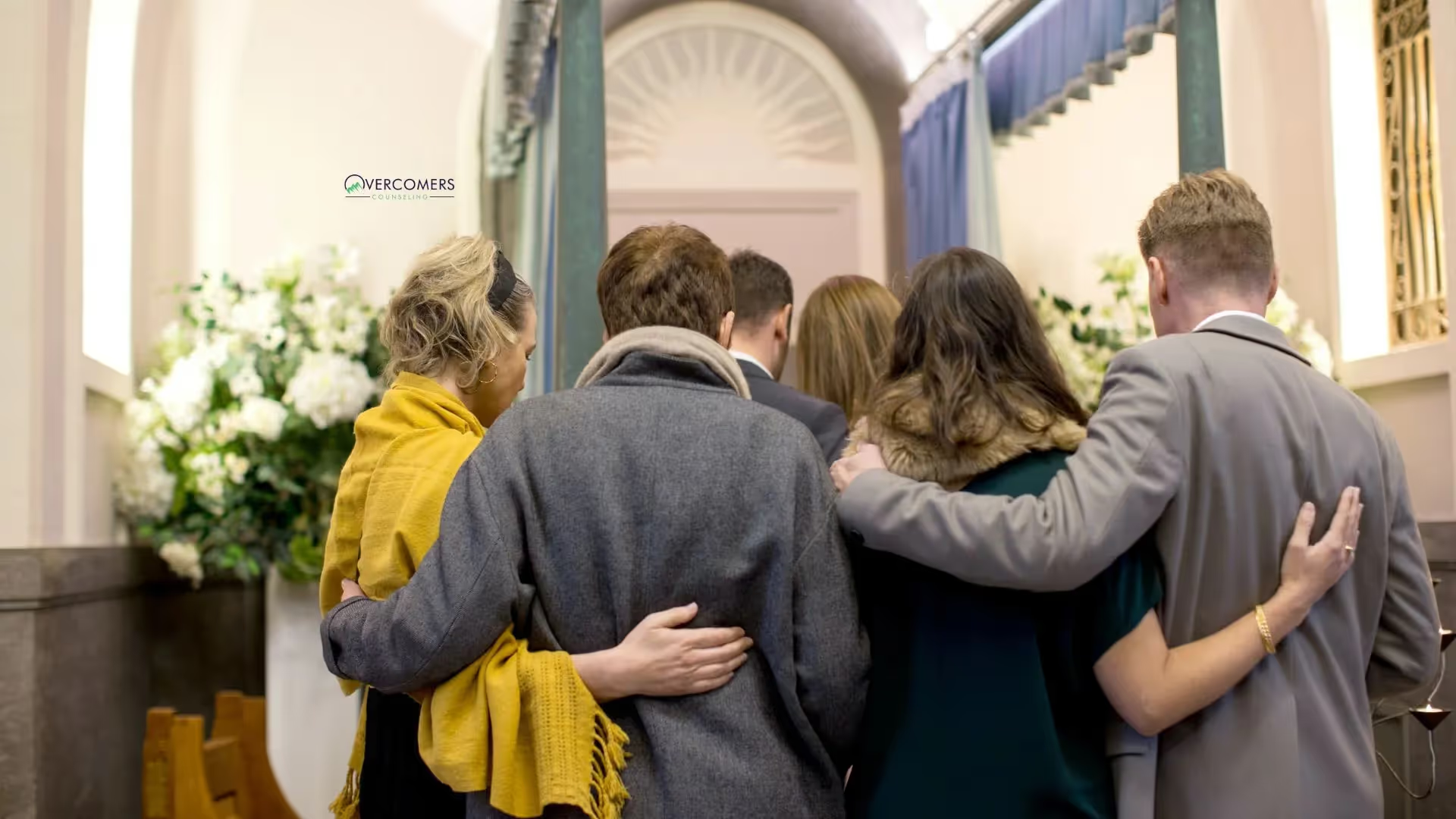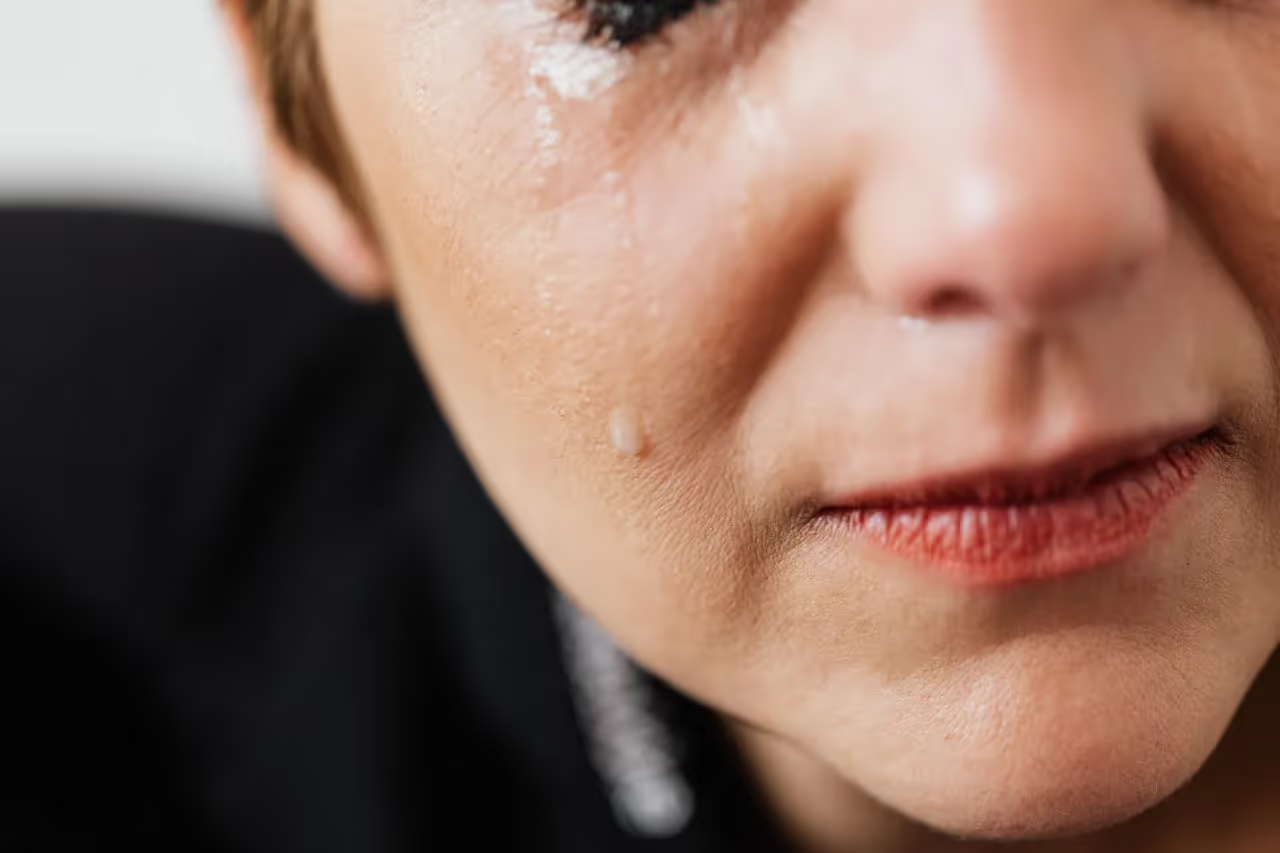Although any type of loss is usually devastating, a loss that comes from suicide can hurt more. There are many reasons why a suicide loss still hurts more....

Although any type of loss is usually devastating, a loss that comes from suicide can hurt more.
There are many reasons why a suicide loss still hurts more.
A loved one's suicide might require grief therapy.
Guilt is one of the reasons why a suicide loss still hurts.
Guilt can interrupt the natural grieving process with negative thoughts that grow stronger with time.
Guilt can make doing anything in your life unfair.
Blame is another feeling that might interfere with healing from a suicide loss.
Blame is about selecting something, or someone is responsible for a wrong.
The blame usually comes from external people, but cases of self-blame might be stronger.
Grief can be a very long and painful process.
Each person experiences their grief personally and has to respond to their own needs during their grief process.
One of the reasons why a suicide loss still hurts might be due to processing your grief.
Find out reasons why a suicide loss still hurts below
Guilt is an intense feeling that can be difficult to ignore.
On the contrary, in most cases, guilt actually gets more powerful with time.
Determining if you feel guilty for any reason would help you with the grieving process.
Guilt can be a tricky feeling that works without any logic.
For instance, you might feel guilty for being the person to live.
This is known as survivor's guilt.
Another common guilt is for not spotting the warning signs even though there might be no warning signs.
It is important to remember that although you might be close to your loved ones, you exist separately.
This means that your loved one has their own choices and decisions independent of you.
Carrying guilt might make you restrict you from doing anything that would help you move on.
Guilt is one of the reasons why a suicide loss still hurts.
It would help you to consider how to resolve your guilt.

Another one of the reasons why a suicide loss still hurts is blame.
Blame usually results from the human desire to ascribe responsibility for something.
In some cases, the blame is unjustified.
The death of a person will likely have other people look for something to blame.
The death via suicide, since it was direct, might be blamed on the deceased and also the support system of the deceased.
You can be yet to heal from your suicide loss from dealing with the blame from other people.
Self-blame is also relevant to this topic.
The bereaved of a suicide victim might wonder if they are in some way responsible for their loss.
They might believe that they could have done more to aid their loved ones.
It would help to remember that some things are blameless.
The loss of the deceased person could arise from something that no one is capable of controlling or influencing.
It is also important to remember that even regardless of the conclusion on blame, forgiveness is virtuous to practice.

Most people have an internal system of justice.
This means that most people decide within themselves whether something is right or wrong and what would be a fair punishment.
In some cases, the survivors of a suicide loss apply their sense of justice to themselves and apply it.
For instance, a person could decide that they should have been able to avert the decision of their loved one to end their life and consequently inflict punishment on themselves.
Choosing to suffer might be a punishment that they have chosen.
One of the interesting things about judging oneself is that one is usually harsher on themselves than other people.
This might create very high expectations of self.
These thoughts can be a significant barrier to healing from the loss of a loved one.
Choosing a punishment could be among the reasons why a suicide loss still hurts.
It would be helpful to be more generous towards oneself against self-judgment.
Suicide is often a traumatic experience for the bereaved.
The bereaved have to deal with the loss of a loved one and also cope with the decision of their loved one to end things.
For some people, this could foster abandonment issues.
Although the argument that the deceased chose to exit the world and everything in it might appeal to you, this fails to consider the deceased.
There is a temptation to focus the actions around us on us.
However, you can choose to focus on the deceased and their preferences.
Trying to understand the deceased might give better insights into why they made the decisions.
This can also give you closure to realize that there was no intention to abandon you.
The feeling of abandonment could be one of the reasons why a suicide loss still hurts.
The feeling of being abandoned by the deceased is more common among people that have faced abandonment before.
Addressing the abandonment sentiment can help to cope with the grief.
Grief is an excruciating period in the lives of most people.
It can create hollow points in grieving.
Some people assume that grief is meant to be in one moment of tears or sadness.
However, grief can be all-encompassing of a broad range of emotions.
Grief is also personal for most people.
This means that for certain people, it might last longer or be more intense.
Another reason why a suicide loss still hurts is due to the grieving process.
The grieving process is simply a person's way of grieving their losses.
It is vital that people be allowed to express their grief.
There are also different needs for the grieving process of one person.
Some people might need counseling to process their grief healthily.
Some might just need a really long time to process their loss.
Suicide is more common than most people might want to admit.
This means there are a lot of people without sufficient grief support.
The reasons why a suicide loss still hurts include managing guilt, blame, punishment, abandonment, and the grief process.
Dealing with Guilt after Suicide - Our Side of Suicide
Left behind after suicide - Harvard Health
Blame and Shame After Suicide Loss I Psych Central
Grief Counseling: The Grief Process, Models of Grief, and Grief Therapy (goodtherapy.org)
How to Process Grief and Find Healthy Ways to Overcome loss (betterup.com)
Dealing with someone who is addicted to drugs or alcohol can be difficult. It is important to remember that addiction is a disease, and the addict is not responsible for their behavior. You can offer support and understanding, but it is important to set boundaries. You can also get help for yourself through therapy or counseling.
Complicated grief, also known as prolonged grief disorder, is when intense grief symptoms continue for an extended period, often longer than six months. This type of grief can result in difficulty resuming normal life activities and can lead to sleep problems.
It is completely normal to feel dread or even fear when thinking about the upcoming holiday season. One way to ease your anxiety is by planning ahead and being prepared for how you will deal with tough moments. If there are certain events you know will be difficult, try to come up with an exit strategy beforehand so you can leave if needed. It can also be helpful to talk to a therapist or counselor before the holidays to help you manage your expectations and emotions.
Some signs that you may be ready to move on include feeling at peace with the breakup, no longer regularly thinking about your ex, and having a renewed sense of optimism. Ultimately, only you can decide when you're ready to start dating again or take other steps toward moving on.
There are a variety of symptoms that can be associated with grief in the elderly. Some common physical symptoms include fatigue, changes in appetite, and difficulty sleeping. Emotional symptoms can include sadness, anger, anxiety, and guilt. It's also common for those who are grieving to withdraw from social activities and lose interest in hobbies or activities they once enjoyed.
There are a few things you can do to help ease your pain during the holiday season. First, try to avoid triggers that may cause you to feel sad or upset. Triggers can be anything from certain songs or smells, to seeing certain people or places. If you know there will be triggers at holiday gatherings, try to arrive late or leave early if possible. You can also try to create new traditions that don't involve the triggers.